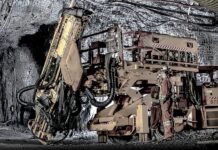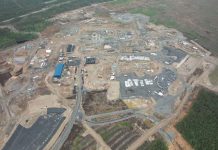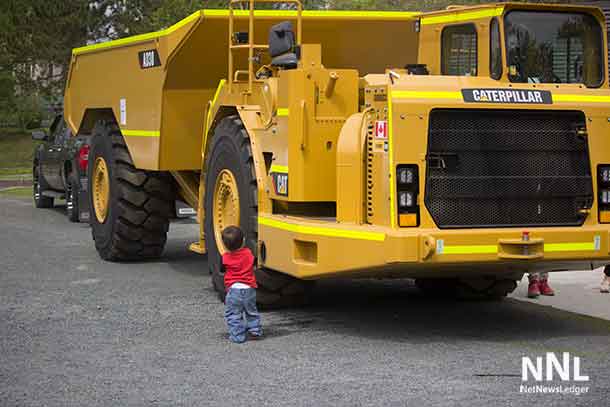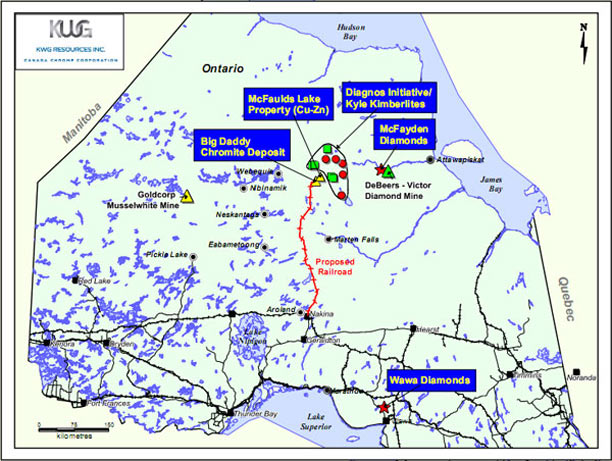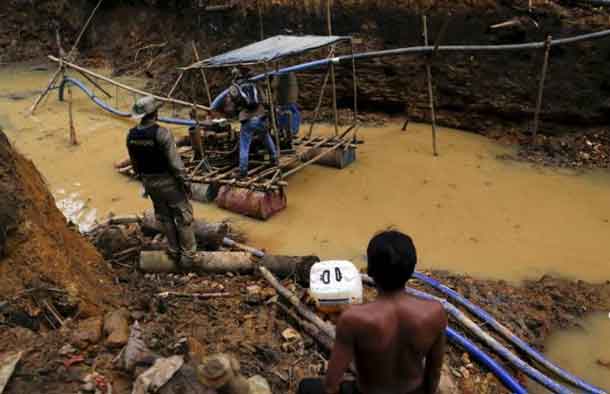

“These tribes are completely vulnerable. If miners and loggers get into their land, they are very vulnerable to violence and diseases”
By Karla Mendes
RIO DE JANEIRO (Thomson Reuters Foundation) – Endangered indigenous tribes are increasingly facing threats from miners in the Amazon rainforest amid budget cuts to the Brazilian government agency responsible for protecting them, local officials and activists say.
A federal prosecutor in Brazil’s Amazonas state has launched an investigation into a reported massacre of at least 10 members of an “uncontacted” tribe by gold miners in a remote area along the Jandiatuba river, close to Peru’s border.
A unit of the indigenous affairs agency, Funai, was recently closed, leaving indigenous lands exposed to invaders, activists say.
“There is an ongoing inquiry into the case but I cannot speak about its content in order to not prejudice the investigation,” federal prosecutor Pablo Beltrand told the Thomson Reuters Foundation.
If confirmed, the massacre would be one of the worst such tragedies since the murder of 16 Yanomami indigenous people in 1993.
Funai officials in Amazonas received an audio clip with miners bragging about the crime, said Gustavo Souza, acting coordinator of Funai’s ethno-environmental protection front at Vale do Javari, where the murders allegedly took place.
Souza said he heard miners in the recording saying there were women and children on the river bank and they shot them.
“In the audio, one of the miners said ‘you know, I do not mistake a shot’,” Souza told the Thomson Reuters Foundation. He also saw a picture of a hand-crafted paddle that reportedly belonged to the indigenous tribe.
The number of invasions in indigenous lands in Vale do Javari has been increasing amid budget cuts – part of austerity measures aimed at lifting Brazil out of its worst recession in decades.
“With budget cuts this year, there was a reduction of Funai’s team in the area by half,” Souza said.
Although Vale do Javari is one of the largest indigenous reserves in the country, it is patrolled by just 10 Funai officials.
The officials attempt to monitor an area of 85,000 sq km, home to largest number of uncontacted indigenous worldwide.
“Indigenous lands are at risk amid increasing invasions and we’re afraid that it’ll get worse from now on,” Souza said.
Carla de Lello Lorenzi, spokeswoman at indigenous rights group Survival International, said the cuts put indigenous lives at risk.
“These tribes are completely vulnerable. If miners and loggers get into their land, they are very vulnerable to violence and diseases,” Lorenzi said.
(Editing by Ros Russell.; Credit the Thomson Reuters Foundation)


